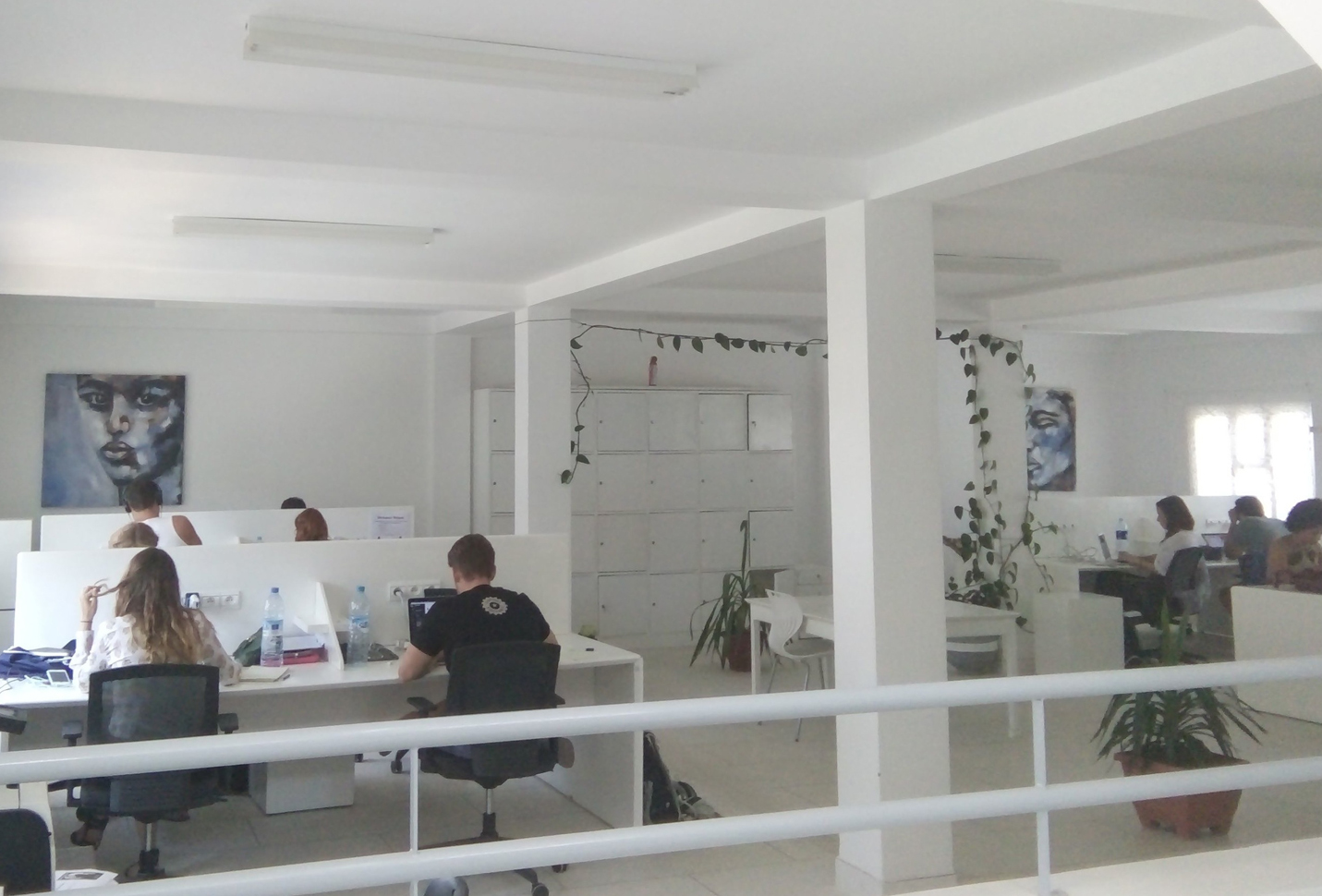This is the third article in Carolyn Cirillo’s “Adaptive Reuse Stories”, exploring how coworking brings back life to underutilized and abandoned buildings. You can find the other stories here.
At 7AY coworking, founder Ilham Halib integrates Moroccan customs and culture into the space, building community by sharing meals of healthy, homemade food and relaxing on the rooftop in a traditional nomadic tent.
We spoke with Ilham about how she created, built, and designed her space; making 7AY one of Morocco’s top choices for coworking.
*Remarks have been edited for space and clarity.
[Best_Wordpress_Gallery id=”17″ gal_title=”7AY”]
How did the concept of 7AY Coworking come about?
I was working independently as a social and political communications consultant. After two years of working from home, I was looking for space for work.
Instead of renting an apartment, I had this idea to create a special space for me and offer space to fellow independent consultants.
What is the significance of your name? (The 7 is pronounced hay)
It has two meanings in Arabic; the first means a district or neighborhood. The second means “to be alive,” which is the perfect word to describe what coworking is supposed to be. To be alive in the space.
What drew you to this area?
I’ve been familiar with the area for about 20 years; this design-focused district is known for attracting people that are searching for handcrafted goods. When I was looking for a place to ‘set-up shop’, I found the building where we’re located and it just seemed like the right fit for what I had envisioned.
What was the building’s original use?
It was a warehouse of fabric, materials, and furniture.
What did you preserve and repurpose from the original building and structure?
We kept the original building and columns, but we did knock down all of the walls. We renovated the ground floor and added the kitchen area.
New desks are expensive, but we were lucky to have joinery machines inside the warehouse; so we used the existing wood and the joinery equipment to design and build all the furniture in our space: this includes tables, desks, countertops, tool, and lockers.
For example, we transformed what was a wooden staircase railing into high stools that we use in the kitchen. There was also a beautiful traditional Moroccan door made out of wood that was going to be thrown out; we kept it, renovated it and turned it into our main entrance.
We didn’t only save a huge amount of money, we also created something completely unique.
How would you define the vibe in your space?
Coworkers say when they’re inside 7AY they feel two things: one is that they will have a productive day, and the second is that they won’t need to sacrifice the social part of coworking to be productive. Their reason for saying this is that our workspace is known for being well-organized and for having a mix of open and private spaces, and also a rooftop tent.
Tell me about the tent.
It’s a typical nomadic tent from the Sahara desert, and it was handcrafted by a cooperative in traditional Moroccan design. The inside, which spans 1,000 square feet, is furnished with Moroccan couches, pillows, low tables, and carpeting. It’s probably the most popular option of where people decide to get work done or meet within 7AY.
What would you do differently?
I wouldn’t change anything design-wise. However, on the community-building and marketing side, I would likely be more aggressive.
How did you build community?
Our first year we built things organically; starting with colleagues and their close network and inviting them to events in 7AY. After those first 12 months we realized we needed to be more aggressive in terms of marketing, so we focused heavily on content marketing and advertising.
What are you most proud of?
That our members are our first and best ambassadors. I’m also proud of our weekly community lunch and potluck; it’s quality time where members and staff get together and talk.
But I would say I feel the most proud of creating a workspace where our members feel at home.
What advice would you give an operator considering opening a space?
When you find the right space, focus on the user experience and not on your design vision. Also, it’s very, very important to have a good source of natural light and extremely strong internet.
The kitchen is another important and key aspect of our workspace, it’s where people naturally go and meet and encounter others. Make sure you have a spacious kitchen, that you keep it clean, and that it’s always stocked with coffee, flowers, fruits, and other snacks.
Extra tip: we’ve found coworkers maintain better social links with each other and keep up productivity if they share meals onsite. So we decided to provide three options to cater high quality food so they don’t have to go outside to buy meals. We sell food on site, members are encouraged to bring food from home or prepare their own food onsite, and we also order food for everyone and enjoy a buffet together once in a while.
Project Summary
Name of space: 7AY (pronounced “HAY” )
Location: Rabat, Morocco
Contact information: Ilham HALIB / [email protected]
Original building use: Warehouse of hydraulic logistics and materials, and joinery handicrafts
Year built: 1992
Square footage: 780 square meters around 8400 square foot
Date open: Official opening on January 2014
Number members: 35 permanent residents + 40 part-time members
Number desks: 50
Number offices: 8
If you have converted a non-office building into a coworking space and would like to be considered for a feature in Allwork.Space.
















